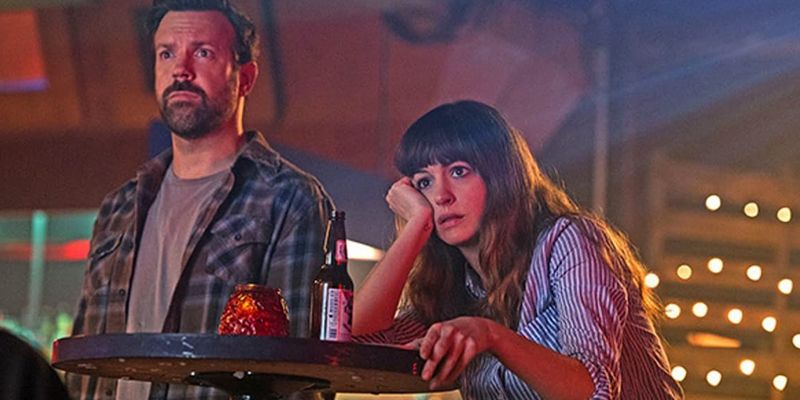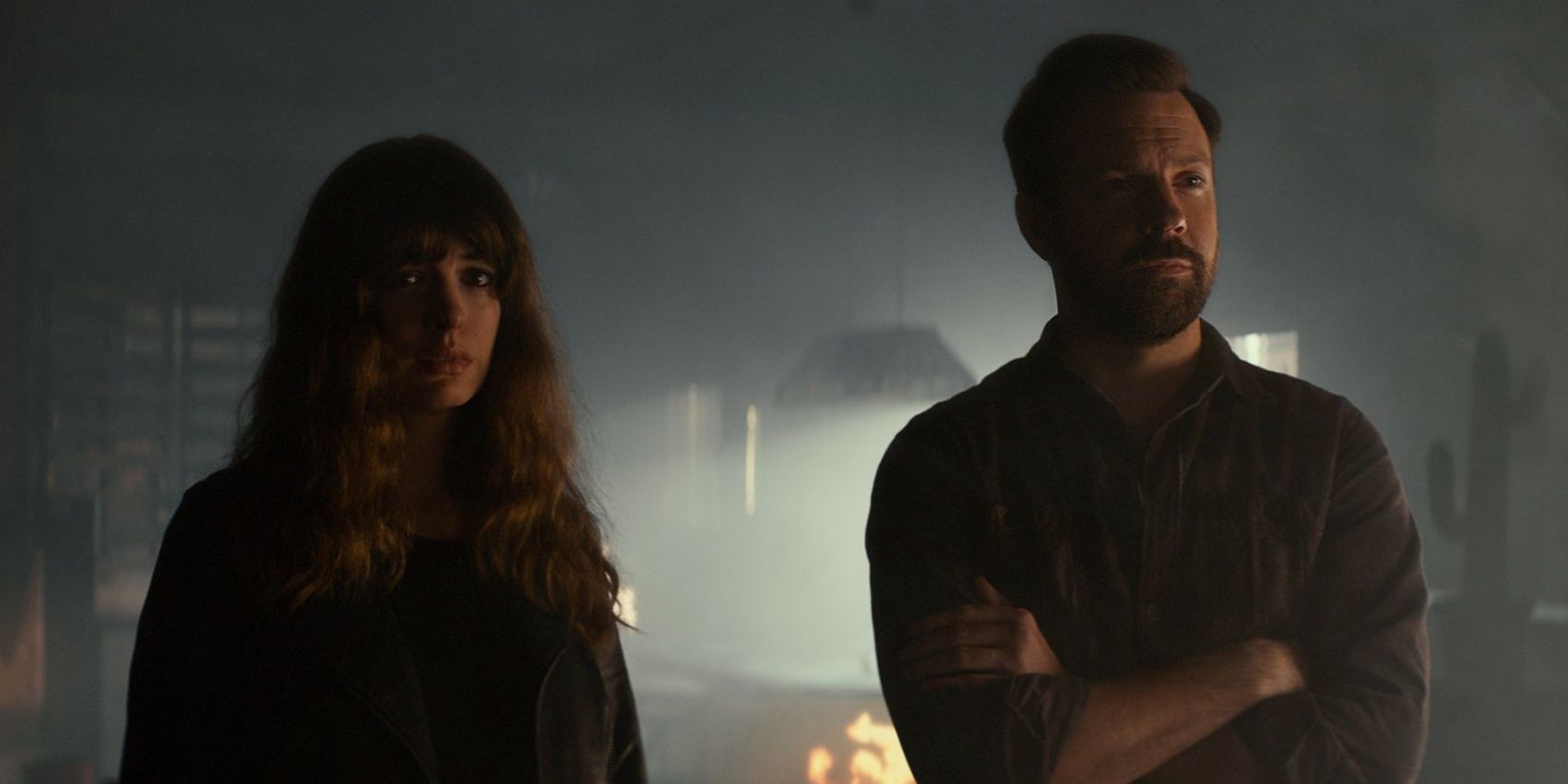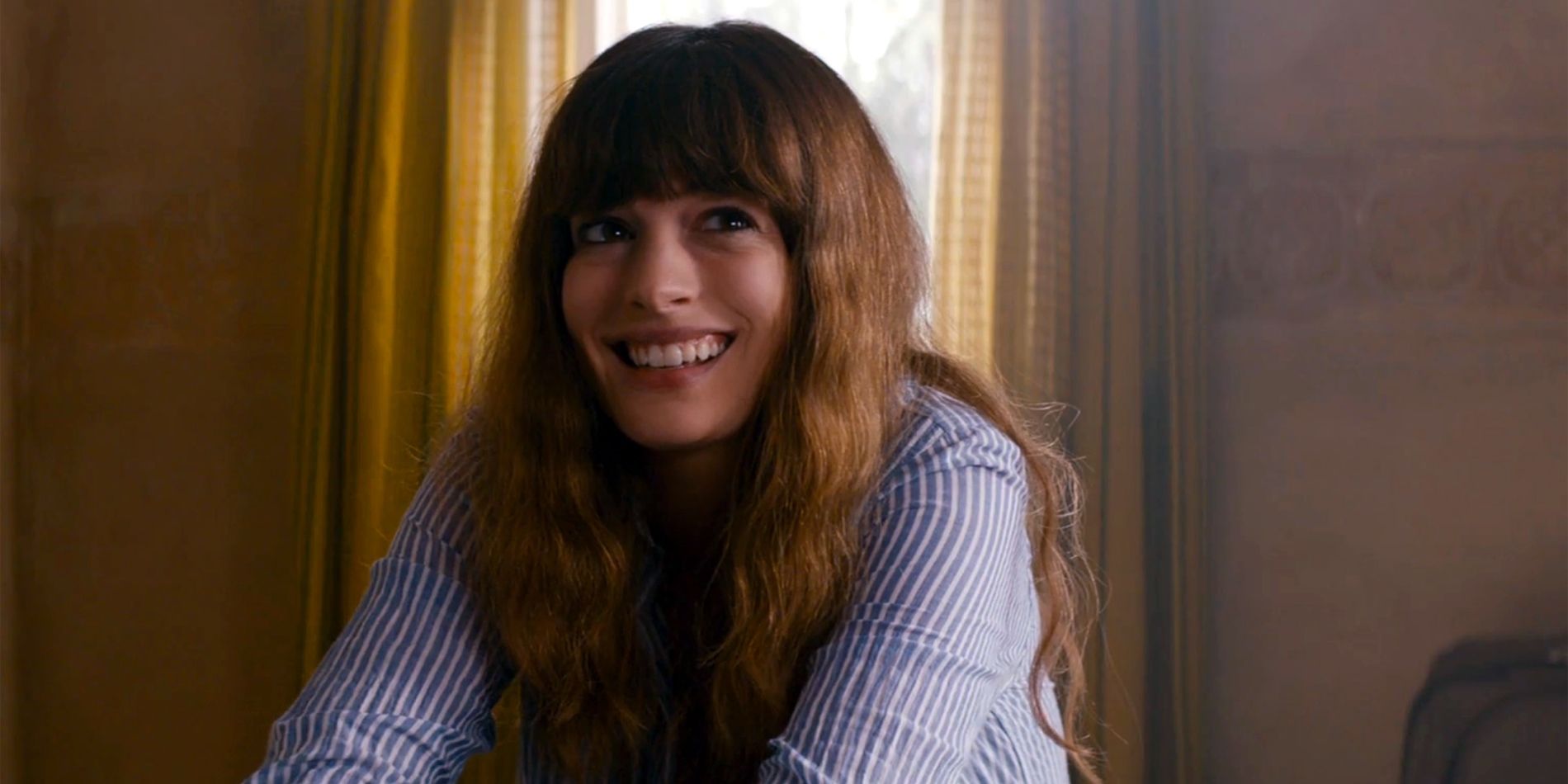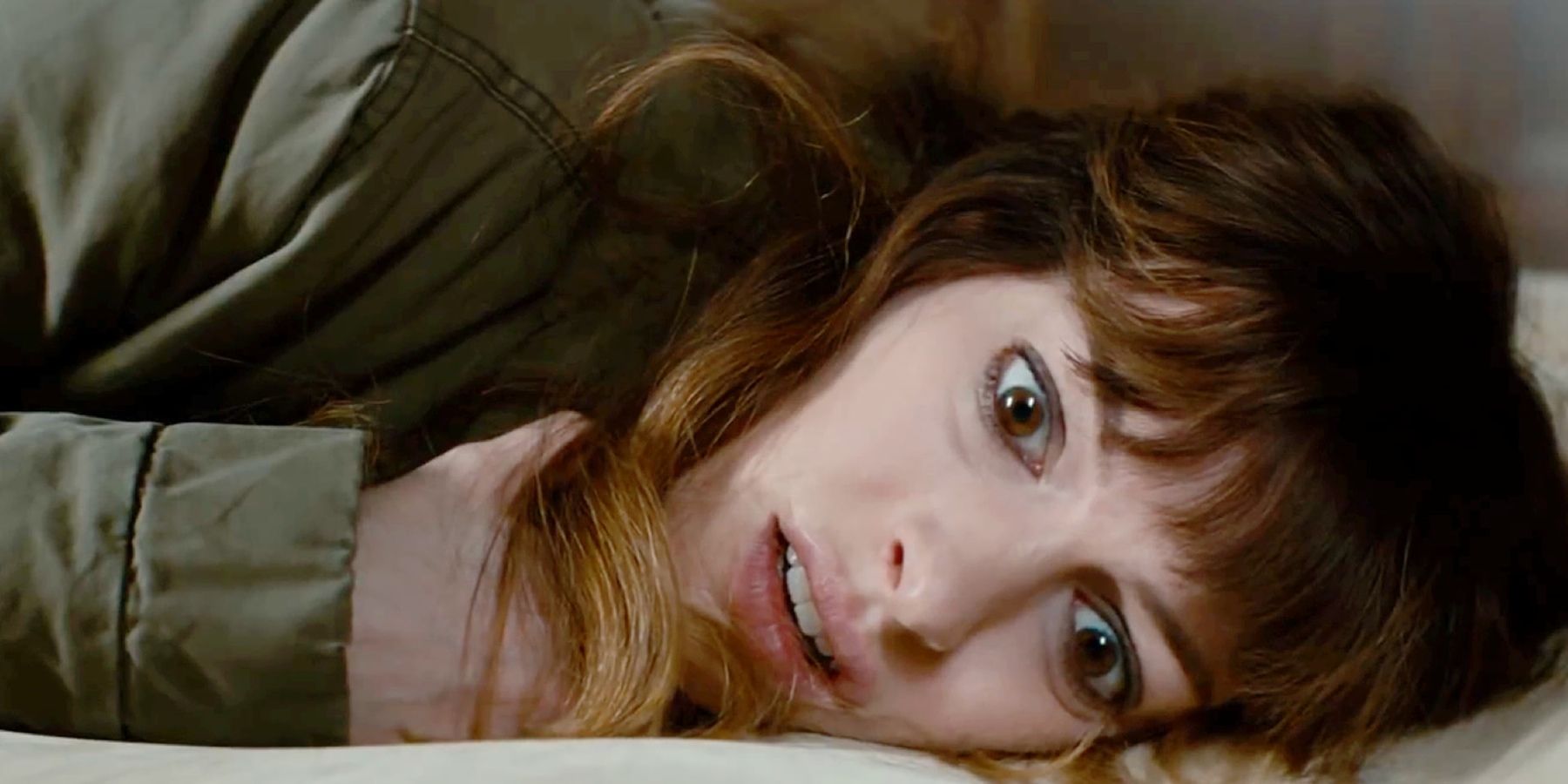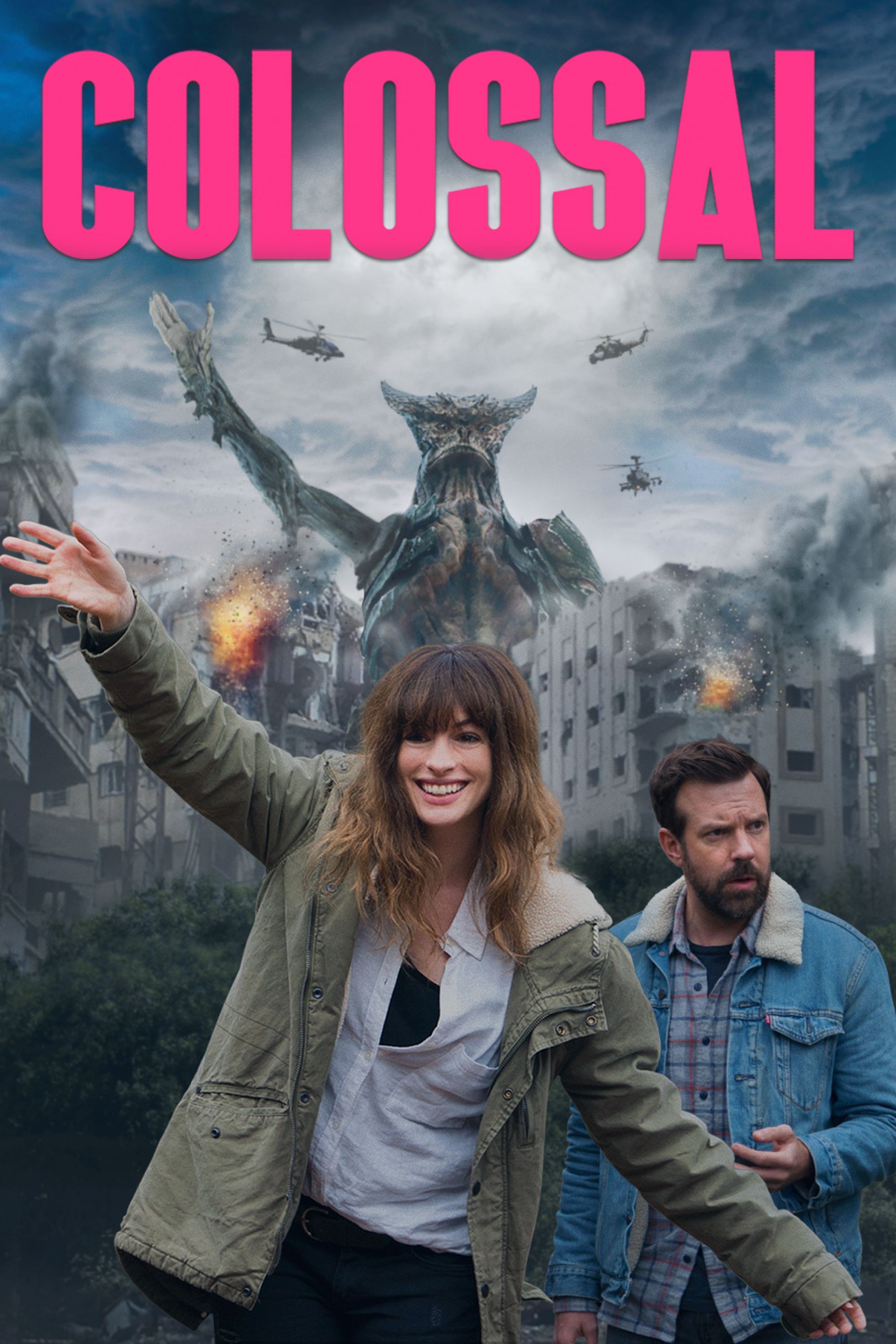This weekend audiences across America got the opportunity to enjoy the silly, smart and sensational Colossal, and discover there's more to this clever Kaiju comedy than meets the eye!
Out of SXSW, Screen Rant sat down with Colossal's writer-director Nacho Vigalondo for long conversation about this film, his career, and his politics. Ahead of Colossal's release, we shared how the Spanish genre-helmer moved from the trippy sci-fi thriller Timecrimes to working with one of Hollywood's most esteemed ingénues on a bonkers and brilliant monster movie, and shared his not-so-secret ambitions to helm an Aliens sequel. Now, we dig deep into this quirky comedy's second act surprises, and the feminist issues Colossal ultimately tackles.
Major spoilers for Colossal lie below!
The first act establishes Gloria as a selfish alcoholic oblivious to her negative impact on others. But, once her Kaiju's destruction accidentally devastates Seoul, Gloria has a major wake-up call and vows to change her ways. However, when her drinking buddy Oscar (Jason Sudeikis) discovers he can manifest a massive monster over Seoul (in the form of a gargantuan robot), an antagonist arises, fueled by entitlement and toxic masculinity. Here, Vigalondo's Colossal throws romantic-comedy tropes of the Nice Guy on its head, showing that a man being friendly toward a woman he's interested in doesn't mean he's owed her affections.
When I spoke with Vigalondo following Colossal's SXSW premiere, I was inquired how his monster movie concept became a perfect platform to discuss this insisios branch of sexism. "I had the idea for a silly device," he said of the Kaiju concept. "I love silly devices that can potentially become something else. And I have a bunch of those hidden in my bag. Sometimes I grab one, and I try to toy the idea out into a film. In this case, I was really attracted to try to make a Kaiju film without needing a blockbuster budget. I could make a movie that plays with the idea of having a blockbuster premise, but is not a blockbuster, which I can't afford making. So, that was the initial impulse: Let's make a Kaiju film in which we are talking about lack of empathy because some people care about what happens far from home. Some people don't care that much (about the wider world)," he continued. "They're more focused on the small, everyday tragedies that affect them. And everything else? They don't give a f**k. So, I wanted to make a movie about that."
"The funny thing is, originally I wrote another treatment with two guys fighting," Vigalondo said, explaining that the first outline of Colossal featured two men battling as big monsters for the love of a woman. "Because as a male writer, born in the '70s, I have a tendency to write movies from a male point of view," he explained. "And sometimes it makes sense. And other times--like here--it became kind of boring." Essentially, two guys fighting for a girl was something he - and moviegoers - had seen again and again. And so that concept didn't excite Vigalondo enough to actually start that script. "I was trying to give some energy to this story," Vigalondo recalled. "To find something that would really propel me into writing, because I get bored easily. And I want to enjoy the process as much as the end result."
"I don't know how we came to the idea (of a female protagonist)," he said. "But once Gloria appeared as the main character, all the pieces came together. She's the main character. He's a man. Omigod, a man and a woman fighting! That's a different resonance. It's much more powerful. And omigod, why is he fighting her? And so it comes: He's entitled. At some point, he feels he deserves her. It all came at the same time. In like ten minutes, I suddenly saw everything, the whole thing. And I had to write it immediately."
Red flags of Nice Guy behavior are something to which many women are ever alert. And Vigalondo's insightful script is full of them, from unwelcomed "gifts" that Oscar insists Gloria wants, to gas-lighting her about conversations they've had, admitting to casual stalking, and his absolute overreaction when a mutual friend kisses Gloria. Personally, I was a bit surprised a male writer was so acutely aware of these signs of trouble. So I had to ask. "Why am I so attuned to that?" Vigalondo considered. "I can tell you two things that probably lead me to this place. One of them is that in Madrid, I live in a feminist environment. So, mostly my friends are female. And when there's confidence between us, stories appear. When you're in a safe environment, you know? Most of the things I wrote in were from stories I'd heard." Perhaps reflecting back on the stories of his female friends, Vigalondo said with the shake of his head, "The Nice Guy is one of the most terrible identities you can wear these days."
Yet it's an identity for which the filmmaker has some sympathy. "I have to assume that the other source is me being a male, and dealing with male bullshit that is already inside me," he admitted. "I think the proper way to deal with feminism if you're a white cis male, is listen to yourself, and listen to your shadows and your shames instead of just pointing to the other bad guys." And here is the lesson Vigalondo hopes audiences will learn from Oscar, because we all have inner demons that push us to be selfish, unkind, and hurtful.
"I've never been Oscar in my life," Vigalondo explained, relating his own experience to his villain's. "But what if instead of having this chance to become a filmmaker, being able to have this privileged life, being able to travel, and meet people, what if instead of conquer my dreams - sorry for the expression, it's horrible - what if I failed? And I had to go back to my little town in the North, and I spend my life there, and I become frustrated, and I get bored. My sentimental life is a mess. My sex life is nonexistent. What if I become that guy?"
"There were times in my past where I felt entitled to a person," Vigalondo admitted. "And frustrated because that person is not interested in me. I felt angry. Can I recognize those feelings inside of me? Of course I can! Even if I keep them far from any kind of effect, my bulls**t is there." He also noted that he looked to known behavior of abusers in creating Oscar, saying "For me it was important to show him apologizing because that is a common thing with abusers. They're not evil all the time, like Gargamel from The Smurfs. They are violent and aggressive, and then they apologize and ask for forgiveness. And then they become aggressive again. That's a real thing."
"This movie is absolutely filled with personal stuff," he concluded. "It's ultimately autobiographical. I'm her most of the times. I just put myself in her shoes. I felt her. Her situation in the beginning when she's totally out of control, I've been there. Not in the same terms, but I've felt out of control…But he's also some part of me, that I don't want to represent me. So it's interesting to make them fight. To make one flawed part of myself fight with another flawed part of myself. It's a way to explore yourself. Making fiction is the only way you can turn therapy into a profitable thing. You’re depressed? You hate yourself? Art can fix you."

